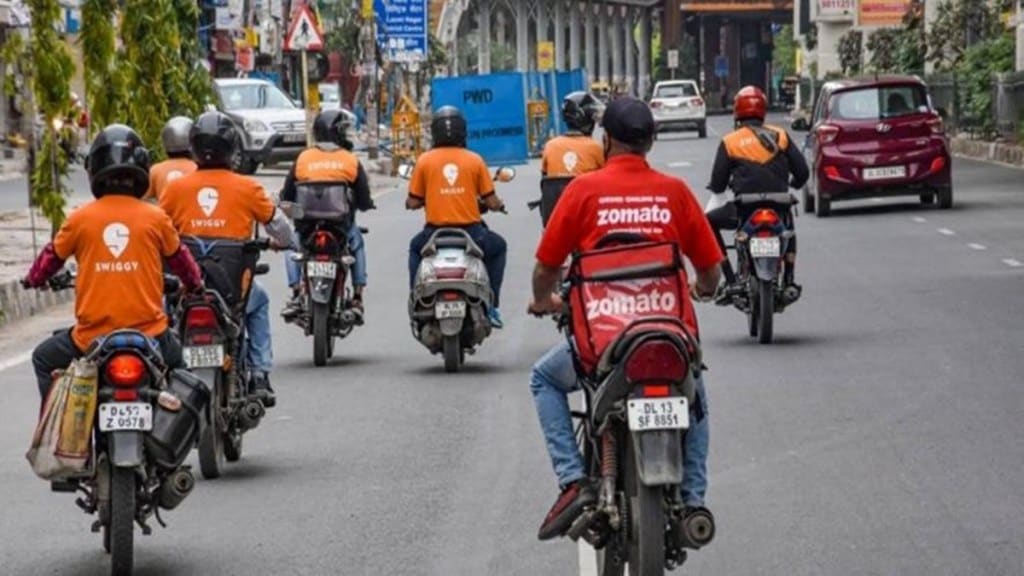A regulatory push from the food safety authority is driving up compliance costs for quick commerce platforms, as they scramble to hire certified food safety professionals amid a widening talent gap.
FSSAI
The Food Safety and Standards Authority of India (FSSAI) recently mandated that all food handlers in dark stores and warehouses undergo food safety training and certification (FoSTaC). As platforms move to comply, they are finding themselves short-staffed and increasingly dependent on a limited pool of certified personnel. The result is a spike in compensation, growing use of consultants, and mounting pressure on already thin margins in a sector still chasing profitability.
“There’s definitely a talent crunch for FoSTaC-certified supervisors now that the new FSSAI rules are in place,” said Sachin Alug, CEO of staffing firm NLB Services, which works with several quick commerce players. “Most quick-commerce players are racing to hire, but the pool of certified candidates is still limited,” he told Fe.
The situation is expected to worsen in the coming months. With the festive season ahead, a period when food operations typically scale up, the shortfall in certified food safety supervisors could grow more acute.
“With the impending festive season when food businesses ramp up operations the supply-demand gap for FoSTaC-certified food safety supervisors has become even more acute,” said Deepesh Gupta, director and head of general staffing at Adecco India.
This demand-supply mismatch has sent wages soaring. Salary premiums for certified supervisors have risen 20-30% over the last six months, with companies offering aggressive compensation to lure qualified professionals.
“Salary expectations have gone up as demand surged after the recent crackdowns,” Alug added. “Companies are offering clear premiums to secure FoSTaC-certified talent. Availability is tight, so firms are having to move fast and stay flexible on pay to attract the right people,” he added.
The inflationary pressure isn’t limited to supervisory roles. Platforms that earlier maintained minimal compliance teams are now establishing full-fledged food safety divisions, thus raising demand across levels and adding to the strain on available talent.
Industry Responds
To bridge the gap, many players are resorting to hiring contract-based food safety consultants as an interim fix. But the stopgap solution comes with trade-offs.
“While hiring contract-based consultants helps meet urgent needs, they do not replace the role of trained, permanent personnel, who are accountable for end-to-end compliance. Excessive dependence on temporary staff may result in surface-level compliance, leading to increased risk of violations, especially in high-risk food environments,” Gupta said.
With structural shortages unlikely to ease quickly, platforms are starting to invest in long-term solutions. Companies are tying up with training partners and building internal programmes to develop their own FoSTaC-certified workforce, marking a shift from external hiring to capability-building.
The development follows a spate of enforcement in the sector. In May, Maharashtra’s Food and Drug Administration shut down Zepto’s Dharavi warehouse after finding fungal growth and expired stock. A Blinkit warehouse in Telangana was also sealed and labelled “unhygienic and dusty,” with authorities confiscating Rs 1.34 lakh worth of expired goods. Similar actions have taken place in Pune, Bandra, Bhiwandi, and Hyderabad.
Food Safety and Standards Authority of India, CEO G Kamala Vardhana Rao recently met over 70 representatives from quick commerce and e-commerce platforms, and warned them that any deviation from food safety norms would be met with serious consequences.
Under the new guidelines, platforms must submit detailed training schedules and maintain real-time records of all certified personnel in their warehouse and storage operations. This comes at a time when companies are still wrestling with high burn rates.


